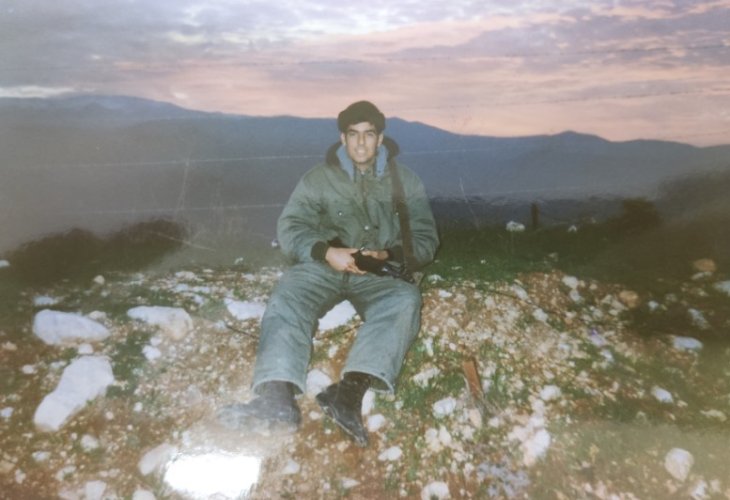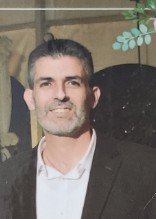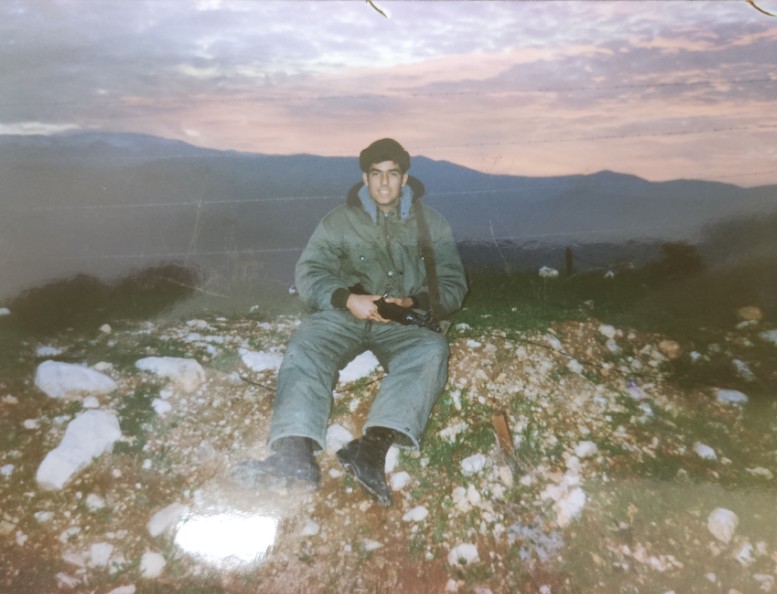Avi Benishti: 'How I Was Saved at the Last Moment from the Helicopter Disaster'
Avi Benishti was a young soldier in the Artillery Corps when he was told he would board a helicopter heading to Lebanon with his comrades. At the last moment, they were ordered off the helicopter, saving their lives. In an initial conversation, he recounts that cruel night: 'We were supposed to be there.'

Over 23 years have passed since the helicopter disaster—the fatal and horrific aviation accident that claimed the lives of 73 soldiers; it was considered the deadliest helicopter disaster in the world until 2002.
Avi Benishti, now 44, cannot forget that shocking night, and now, for the first time in his life, he reveals in a conversation with Hidabroot: "It was so close to me, in one moment I could have been in the place of those victims."

'We Already Boarded the Helicopter'
Benishti was drafted into the IDF in 1994 into one of the elite intelligence units. With him on the team was a guy named Idan Elper, z"l. "I was a very good friend of Idan from the day we were drafted; a special bond was created between us. To this day, I remember his smile, his good advice, his rare kindness," he says emotionally.
At a certain point, Benishti was sent home due to untreated medical reasons and later even sat in jail for a week. "When I returned to the unit, the battalion commander informed me that as punishment, he was sending me to the Artillery Corps, where I also served until the end of my service as a combat soldier."
Here, in fact, begins his direct connection to the helicopter disaster. "It was during the period when I served in Lebanon," he recalls, "on one of the days we left home, and when we were supposed to return to Lebanon, we arrived in the north, where they informed us that helicopters would soon arrive to pick us up. We sat together, and it was a rainy day, and I don't know why I started making dark jokes in the air. I asked my friends: 'If you die, what color flowers do you want me to bring to the funeral?', and we continued with the dark humor that matched perfectly with the gloomy weather."
Later, they arrived at the Mahanaim junction, where they were told to wait at the airport until the helicopters arrived to pick them up. "The helicopters arrived," he recalls, his voice shaking, "they landed, and we got into them and wanted to sit down, but then the officer from Nahal came and told our officer that they needed to board the helicopters, not us. At that moment, a dispute broke out that ended with us being told to get off. So we got off the helicopters and were ordered to get into minibuses until the helicopters dropped off the soldiers and returned to pick us up."
Yet, as it turned out that terrible night, the helicopters never returned. "We were sitting in the bus," Benishti recalls, "it was dark and everyone fell asleep except me. Suddenly I heard the driver receiving a report via radio about an 'explosion in the sky.' I immediately woke up my friends and told them, 'Guys, I think a disaster happened.' At first, they didn't understand what I wanted and tried to wave me off: 'You and your dark jokes, we're tired of hearing them, let us sleep...' But then everyone heard the report that two helicopters had fallen, and at that moment our officer announced that we were leaving immediately to the area to be the first rescue force. We could not yet comprehend the scale of the horrors, and we could not imagine that there would be no one to save. I even remember approaching the officer with my personal bandage and giving it to him to treat the wounded..."

'It Took Time to Realize There Were No Survivors'
Benishti arrived at the scene with the rest of the battalion soldiers. "We were almost the first there, we saw stretchers lined up in rows, and we began searching the area. Our main mission, as instructed, was to try to save lives, but it took us a long time to realize there were no survivors. Meanwhile, we received a clear order not to report anything about the disaster, as the parents of those soldiers did not know anything at that stage."
Shortly thereafter, Benishti discovered that his good friend Idan Elper was on one of the helicopters. "At that moment, I had not yet processed it, and even for a long time after, I was unable to contain the immense pain. Idan, my good friend, who slept with me in the tent and with whom I had such long conversations, was no longer with us. Of course, alongside all this was the feeling that these were the helicopters we boarded just moments earlier, and essentially—the disaster almost happened to us. Death suddenly became so near and so real."
Shortly thereafter, Benishti learned something else. "It turned out that my older sister dreamed a few days earlier about my late grandmother. She saw the grandmother dressed in black, asking to enter our house. My sister told my father about it, who hurried to visit the grandmother's grave, feeling that perhaps something bad was about to happen."
When did you feel you began to recover from the disaster?
"It took a really long time. I was a young man and really went through a crisis of faith. Until that day, I grew up in a traditional home; although we didn't adhere to everything, we were a believing family. After it all happened, I could no longer continue on that path, I began violating Shabbat and felt great anger towards the Creator of the world. It was difficult for me; I could not understand how something like this happened."
Benishti himself does not know how it happened, but after a few years, he found himself once again in a process of strengthening. "I think something from the faith that my parents instilled in me all my life—was probably etched in me," he says. "My roots are very strong, and I also had religious grandparents who always observed Shabbat and conveyed messages of faith and trust in Hashem. It wasn't something specific that helped me approach, but I went through a process with myself, trying to think about why I remained in the world, what purpose I have here, and what I need to do. That's how I found myself drawing closer and closer."
In those days, he also got married, and his wife grew closer with him. "At first, we said to ourselves: 'We won't keep Shabbat, we'll just turn off the TV,' and then we added: 'We'll take the stairs and not the elevator,' and thus the progress continued more and more. Today, baruch Hashem, I am a religious and believing person, observing commandments, with a kippah on my head. I have four wonderful children, and I work as a teacher for at-risk youth."
Benishti notes that it wasn't always easy for him to adhere to observance. "At a certain point, I worked at the electric company, and they offered me a permanent job with shifts on Shabbat. It was a very good salary, and it was difficult for me to refuse, but all the rabbis I consulted with instructed me not to work on Shabbat under any circumstances. To be honest, the sacrifice was very great because I realized I was losing job security, and there was also great anger towards me in the company, but I believed I was making the right move.
"So maybe that's really what Hashem wanted from me—to continue contributing to His world and doing my duty. That's why He left me here."
To contact Avi Benishti: avi2776@gmail.com

